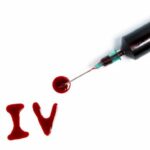
Good news for People living with HIV positive as scientists discovered this
Published on May 20, 2022 at 9:56 AM by Face of Malawi
Antiretroviral treatment, sometimes known as ART, should be administered to all people living with HIV-positive. You are need to consume an antiretroviral medication cocktail once daily for the rest of your life in order to stop the virus from causing infection in other parts of your body.
If HIV is not treated, it can progress to a range of conditions that endanger life, including cancer, which in its most severe form can be fatal.
Antiretroviral therapy, sometimes known as ART, is almost universally acknowledged to be the most effective method of HIV treatment. Due to the fact that patients are required to undergo therapy for the rest of their lives, they are confronted with a number of challenges, some of which include social stigma, long-term adverse effects, and the possibility of viral resistance.
Those who have been given the news that they have a positive HIV test should find some comfort in the following information: Researchers at the National Institutes of Health (NIH) have uncovered two novel approaches that have the potential to assist HIV patients in remaining in remission for a lengthier period of time after discontinuing antiretroviral medication.
If the findings of this recent study are confirmed to be accurate, those infected with HIV may no longer be need to take medicine for the rest of their lives.
NIAID’s National Institute of Allergy and Infectious Diseases (NIAID) and the National Institute of Health’s (NIH’s) National Institute of Health (NIH) were responsible for the research, which was led by NIAID Director Anthony S. Fauci, MD, and NIAID Chief of the Laboratory of Immunoregulation Dr. Tae-Wook Chun.
It is yet uncertain what the long-term repercussions of discontinuing antiretroviral medication (ART) will be for HIV patients.
Under the supervision of a medical professional, two HIV-positive research participants made the decision to discontinue their use of antiretroviral medication (ART). They started treatment as soon as they became sick, but it took them over six years of taking the medications before they were able to control their HIV infection.
One patient was tracked for a period of four years after they stopped receiving antiretroviral medication, while the second patient was monitored for a period of more than five years. Both of these people had a close eye kept on them whenever they experienced a viral recurrence.
When an individual started taking insufficient antiretroviral medicine (ART) accidentally, the virus was under control for more than three and a half years, with periodic relapses occurring.
The term “superinfection” refers to the process by which an HIV strain that has been suppressed in the past becomes infected with a different HIV strain.
It was discovered that the participants in the study had significant quantities of HIV-specific immune cells known as CD8+ T cells. These cells have the potential to eliminate virus-infected cells in the body.
This individual, in spite of the fact that his CD8+ T cell response to HIV was lower than predicted, maintained exceptionally robust neutralizing antibody responses throughout the duration of the follow-up period, right up to the discovery of an unexpected viral recurrence.
It was discovered that each person has their own individualized control system. The researchers believe that neutralizing antibodies may have had a substantial role in the near-complete suppression of HIV that the second individual experienced up until the point that he became infected with a different strain of HIV.
According to the findings of the researchers, HIV patients who have stopped taking antiretroviral therapy for a significant amount of time are required to have regular testing performed on their antiretroviral medication in order to prevent the development of viral resistance.
Researchers have identified evidence that HIV superinfection may be present in HIV patients who have stopped taking their therapy. This finding adds to the list of potential causes of virological breakthroughs in HIV patients who have stopped taking their treatment.
The researchers think that new strategies will be developed as a result of their results in order to assist HIV patients in achieving remission and avoiding the have to take medication for the rest of their lives.
Sources; SuperStory (via Opera)


